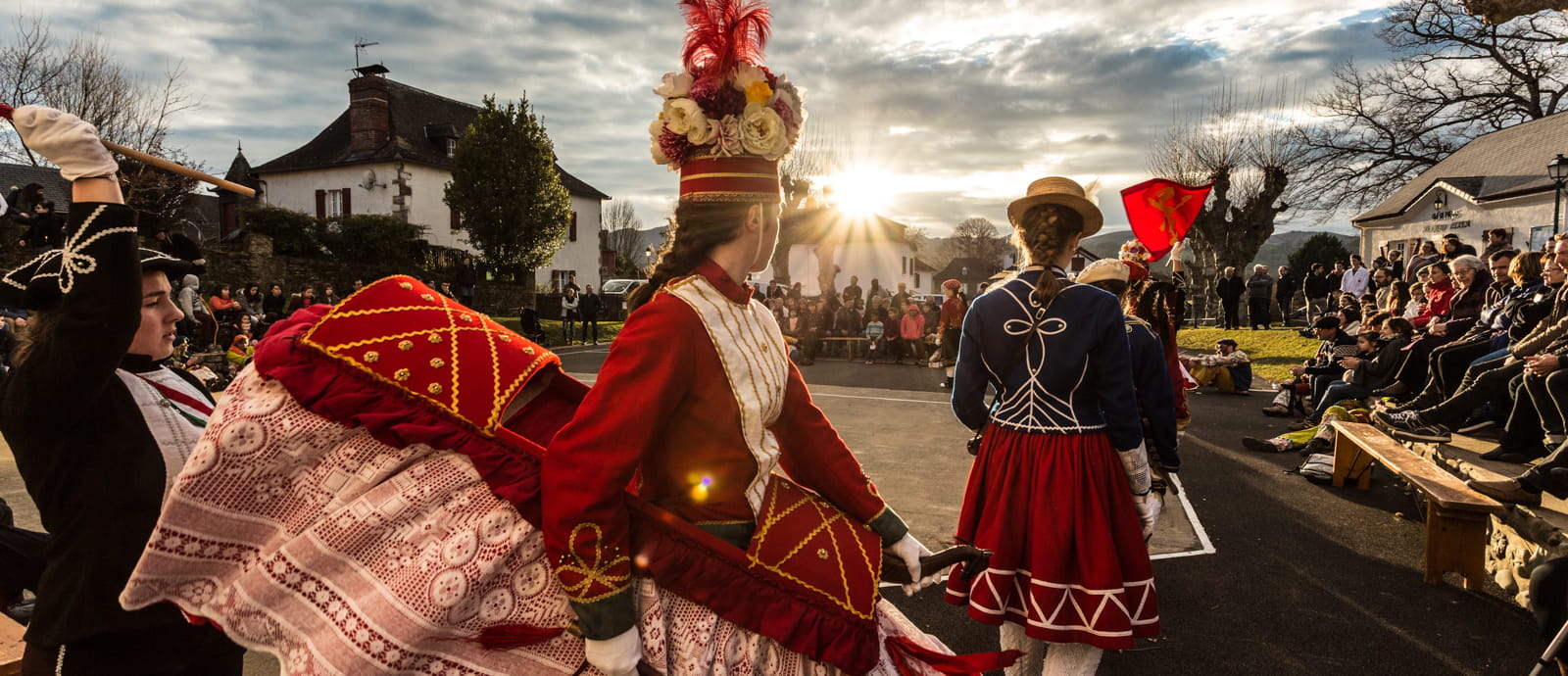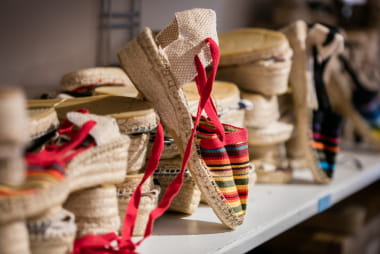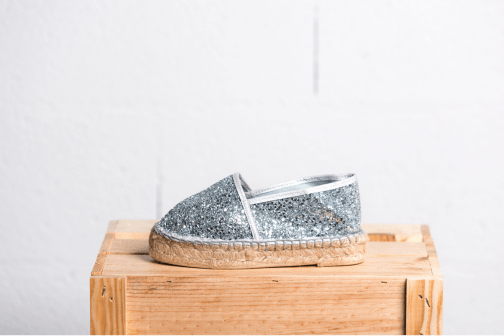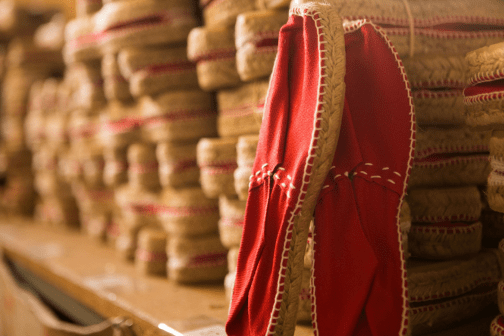
Mauléon and the Soule region
Xiberoa
Soule is the smallest of the Basque Country’s seven provinces, with a population of 14,000 living in 36 communes. It is a rural region that has managed to combine agriculture, crafts and industry without losing any of its authenticity.
The Basse Soule area, like Haute Soule, has very lush green landscapes covered by vast forests. The craft manufacture of espadrilles in Mauléon is emblematic of the valley, as are the Trinitarian church steeples, châteaux and cultural events.
Mauléon – 100 must-see places

A land of traditions
People attached to the mountains and nature
For an entire population, Soule is a sanctuary for the culture and language that is deeply rooted in the heart of this land.
A land of traditions, but also isolated valleys: Soule has been able to preserve its riches to make them better discovered today. The mountains have also left their mark on the Souletin spirit – that’s where the character of generations of shepherds has been forged during the long summer months spent watching over their flocks. Where they created the legends that brought life to the forest and caves and where they rehearsed the powerful songs that they sung at their fêtes.
The people of Soule have always lived with nature and they know how to share it with you.
Mauléon-Licharre, capital of the espadrille

For over 150 years, the espadrille set the pace of life in the Basque Country and above all life in the Soule province of which Mauléon-Licharre became the capital.
First, it was a supple work shoe that was cheap and easy to make. It was made at home or by craftsmen. Today, it has become synonymous with relaxation, leisure and even a fashion accessory.
There is a new craze for the Basque Country espadrille and its success keeps growing over the years, especially thanks to product diversification: originality of models and colours, new materials and especially the great quality of craft manufacture.
Today, workshops welcome the opportunity of explaining their work to visitors.
Rich and varied heritage

The town of Mauléon is not only renowned for its espadrilles but also for its châteaux.
The fortified castle overlooks the town and has a strategic view that enabled the valley to be surveilled. Its walls date from the 12th century. The Château d’Andurain de Maytie is a private home built at the beginning of the 17th century, at the end of the Wars of Religion.
In several villages, the churches have steeples with 3 points symbolizing the Holy Trinity, called Trinitarian steeples. The oldest are Romanesque and were built after the Wars of Religion, such as the church in the Haute-Ville quarter of Mauléon, or in Gotein.
The church of l’Hôpital-Saint-Blaise,
Former hospice foundation listed as a UNESCO world heritage site
Just a few kilometres away is the village of L’Hôpital-Saint-Blaise. The village church is all that remains of the former 12th century hospice foundation.
It is built in the Hispano-Moorish style.
A son et lumière show recounts its history.
Souletin : a mysterious language
The Souletin dialect is different from Basque spoken in the other provinces; for example, its “ü” sound and more emphasized tonic accent.
The Basque language is what unifies and defines the Basque people, on both sides of the border, as the word used to refer to a Basque person is “Euskalduna”, which literally means “a person that masters the language”.
Here are a few useful words for your stay:
Egün hon = hello
Honki jin = welcome
Otoi = please
Eskerrik hanitx = thank you very much
For comparison, here are the same words in Standard Basque:
Egün hon = egun on (hello)
Honki jin = ongi etorri (welcome)
Otoi = otoi (please)
Eskerrik hanitx = milesker ainitz (thank you very much)
USEFUL BASQUE VOCABULARY AND EXPRESSIONS
The land of maskaradak and pastorals
The province of Soule is the happy custodian of very ancient traditions in Basque language folk theatre.
1 - The Maskaradak : the Souletin Mascarades, part carnival and part street theatre, in which two opposing worlds are represented over the course of a day in the village square, the gorriak (people dressed in red) and the beltzak (people dressed in black). The Maskarada goes from village to village, every Sunday, or almost, during the winter months. In the Middle Ages, the Church authorised the population to speak their mind to the seigneur of the village over the course of a whole day, so the men would dance and criticize any seigneurial abuse of authority to their heart’s content …
2 - Pastoral : this event is organised by the inhabitants of a village every summer, generally the last Sunday of July and the first Sunday of August. This traditional type of play is performed entirely in the Basque language on an outdoor stage and recounts the sobering struggle between good and evil. The Pastoral attracts thousands of spectators.
Soule is also the heir to beautiful songs and dances. Here, dancing is far from being a simple folk legacy. It is very much alive and well, featuring in all the main local events. The intricate and demanding dance steps require discipline and technical precision.
Unsual architecture of the house in Soule
On arriving in Soule, you will notice that the red tile roofs have disappeared and grey slate roofs have taken their place.
Houses in Soule resemble the farmhouses of Bearn with their steeply sloping slate roofs. Sometimes, the outside door is spanned by a beautiful stone lintel engraved with the date of its construction or renovation and the name of the builder.
In the Basque Country, it was traditional that the family name was also the name of the house and so, until quite recently, many Basques were called by the name of their home. Even today, a person can be referred to by his surname or by the name of his home. Often the name of the house relates to its location.























